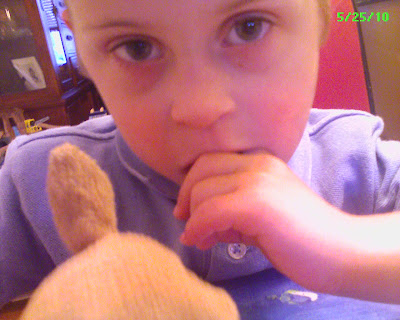AyinBase with R' Paltiel p: 52 8/21/11 Sunday 21 MenachemAv 5771
Page 52 – 4 lines from the top (line starts: hatynug...)
We are concluding the meimar. There are 2 mentions of Noach, which correspond to 2 levels of rest. During work, one limits his orientation – mtzamzem – to do a certain task/activity. He leaves oneg to enter a limited state. At finishing work the faculties return to the source and he has pleasure/tynug from this whole episode.
 |
| p 52, AyinBase, Rebbe Rashab, right click to enlarge |
This is like there were 6 days of creation and then the 7th day. The 7th day was the end of the tzimzum.
oneg/pleasure is essentially something internal to the nefesh. When a man is involved with work you see the work not the oneg, but it is supported by the oneg element. After the work he recognizes the oneg that had been invested in the activity.
This pleasure is deeper than a 'sense of accomplishment'. He sees the significance of what was done and thus oneg/pleasuare results.
When the Fredike Rebbe came America, he said, 'this is a soul mission (neshama shlichus)' - soul purpose has inherent value, not the proof of one's ability. Soul mission is automatically pleasure – revelation of the soul is by pleasure/oneg.
There is pleasure at the start of Shabbat. At the start it is the cessation of work. This is the rest and pleasure after the work. In the world, oneg/pleasure, means, 'I am not being disturbed' – you see a picture of a person putting his feet up – nonsense! The concept of pleasure of the world is hollow. So we don't mean 'lack of disturbance' – we are saying, 'I can reconnect now to real life! To the G-dly presence' - 'I was involved in work, a limited thing, and now I can reconnect to real life' – this is a true oneg, except I am aware of this oneg, because something made me feel it, and I am feeling it in contrast to another state.
For our worldly experience we cannot be aware of something constant. So the start of Shabbat is the return from work to 'real life'.
Afterwards comes Shabbat Day which is the essence of rest, that is not experienced in contrast to something else. The essential pleasure shines through.
Shabbat day is called 'Atik'. Friday night is the 'holy apples – Kingship'. So what is 'Atik'? It is above sechel/mind! If it is essential pleasure, it is not by contrast, and we usually experience things/states by means of contrast. We cannot experience constant states, since our awareness is limited. We are limited to the framework of the body – which deals with contrast.
The body deals with relative states, since it is not from itself. Sechel to some extent is also involved with contrasts. But then there is another element, in the body is the soul itself, unrelated to body – this is Atik – a pleasure/oneg – that impacts/elevates the body. emunah/faith is also rooted at this level and says, 'I just know' – the soul shines through and has no effect on it. This level of essential pleasure can be experienced.
And the Rebbe explains in more 'technical' terms the way these 2 states are described in Chassidus.
The pleasure of Friday night is called 'murkav' – a pleasure that is a composite.
The pleasure of Shabbat Day is 'bilti murkav' – simple pleasure – not composite.
At a higher level this is sensed pleasure and pleasure beyond experience.
'World' starts with absence and then you 'fill it in' – it is a situation that is lacking. But there is a state where 'presence' is not coming from 'non-presence'.
Pleasure beyond experience is that 'there is no explanation for your life' – with this you can distract yourself from being self consciousness, and you can move off into reality. This pleasure beyond experience is the foundation of all concentration and activity.


























